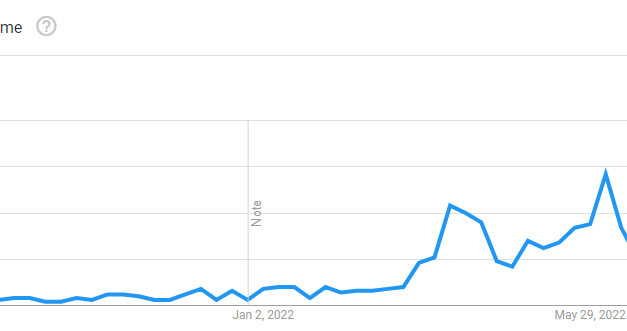ETH may consolidate as Merge excitement wears off, says expert
After a surge in Ethereum (ETH) prices last week, the cryptocurrency may now be treading in a consolidation phase, says asset management firm IDEG’s chief investment officer. In a report shared with Cointelegraph on Monday, the author of the report, Markus Thielen said he while he has been bullish on ETH prices six weeks ago, he has now turned “cautious.”The thesis has been based on macro factors and price analysis of the cryptocurrency, noting that the Fed still continues to “ramp up its Quantitative Tightening (QT) program which drains liquidity,” while noting that ETH’s prices had reached technical resistance at around $1,800.The asset management firm also noted that this has come as Ethereum has seen a 47% drop in network revenue, a decrease in total volume locked (TVL) and there was also a decrease in the stablecoin market cap with USDC experiencing $1.1 billion of outflow over the last week.Speaking to Cointelegraph on Tuesday, IDEG chief investment officer Markus Thielen noted that the recent price rally has not been supported by a change in fundamentals. Thielen also believes that hype around the “Ethereum Merge” is now experiencing a downward trend, illustrated by recent Google search data.Source: “Ethereum Merge” Google trends results: Google, IDEG Research.Thielen suggested that this “Merge fatigue” indicates that ETH is set for a consolidation period prior to the upcoming Merge on September 19. But Thielen also added that this may open up doors for more buying opportunities:“Ideally, a drop into the end of August would set us up for another great entry-level”.Related: Pro traders may use this ‘risk averse’ Ethereum options strategy to play the MergeThielen also commented on the interesting correlation between ETH price and Ethereum Merge Google search results that is currently at play:“It is a good indicator for sentiment and interest, but it will eventually break down and become irrelevant. Nevertheless, it might offer some insights into timing current Ethereum’s price change into the event”.Following the Merge, Thielen is of the view that ETH price will be mostly influenced by how fast adoption rates increase:“While gas fees might stay the same, the adoption curve might not rise initially as fast as many hope, this could make ETH slightly valued, when measured in pure cashflow terms”.ETH is currently priced at $1,587 at the time of writing, down 6.24% over the last 24 hours.
Čítaj viac






